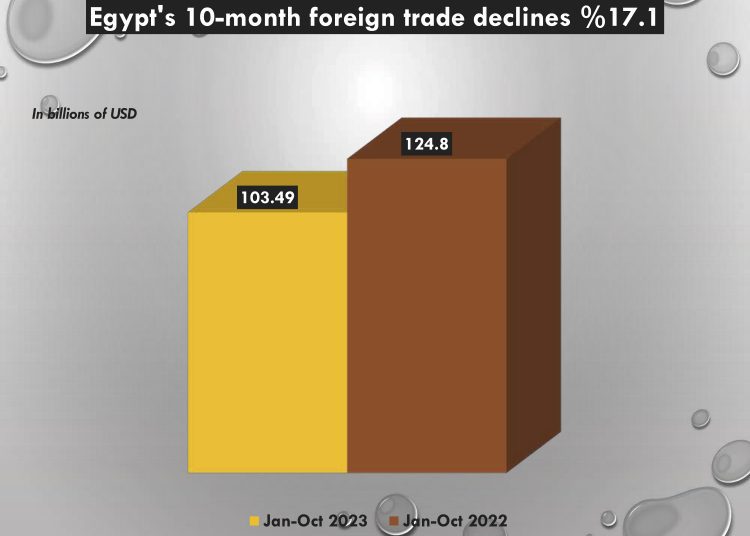Egypt’s revenues from car taxes jumped by 46 per cent, year-on-year, to LE4.43 billion between July and November in 2023, up from LE3.038 billion on the corresponding period a year earlier. The state’s revenues rose to LE609 billion on the July-November period. Taxes totalled LE516.06 billion, according to data from the Ministry of Finance.

Despite the increase in car taxes, auto sales in Egypt fell by 54.8 per cent to 79,944 units on the January-November period in 2023, down from 176,865 units on the same period in 2022, according to data from Automotive Marketing Information Council (AMIC).
However, car sales rose by 24.4 per cent to 9,934 units in November 2023, compared to 7,986 units in the same month a year earlier, according to AMIC data.

Sales of passenger cars declined by 53 per cent to 60,803 units on the January-November period in 2023, down from 128,333 units on the same period in 2022. Sales of trucks plunged 65 per cent to 11,468 units between January and November in 2023, compared to 32,543 units on the same period a year earlier, according to AMIC data.
Bus sales fell by 52 per cent to 7,673 units on the January-November 2023, compared to 15,989 units on the same period a year earlier.
Fed rate cuts in 2024

The US dollar has long been regarded as the world’s dominant reserve currency, playing a pivotal role in international trade and finance. However, recent trends indicate a weakening of the US dollar, which has significant implications for the global economy.
The Covid-19 pandemic has severely impacted the United States, leading to economic uncertainty and volatility.
The US Federal Reserve may cut interest rates this year after inflation eased to 3.4 per cent in December, while economists are more confident about the need to boost investment. The Fed said in its last meeting in December that it might cut rates three times in 2024 following keeping rates unchanged within the range 5.25-5.30 per cent.

After keeping interest rates steady, the Fed said the US banking system “is sound and resilient”. Tighter financial and credit conditions for households and businesses are likely to weigh on economic activity, hiring, and inflation.
The Fed’s Federal Open Market Committee (FOMC) said in a statement that recent indicators suggest that growth of economic activity has slowed from its strong pace in the third quarter.

“Job gains have moderated since earlier in the year but remain strong, and the unemployment rate has remained low. Inflation has eased over the past year but remains elevated,” the FOMC statement said.
Moreover, Fed officials have shown caution since the beginning of 2024. Some of them showed confidence in the US economy, while others hinted that an interest rate cut is still too early.

The US economy has not recovered yet due to the Israeli aggression on Gaza and the Russia-Ukraine war.
Furthermore, the United States’ mounting debt levels have raised concerns among investors about its ability to service its obligations. As government spending increases to stimulate economic recovery, it puts further pressure on the dollar’s value.




